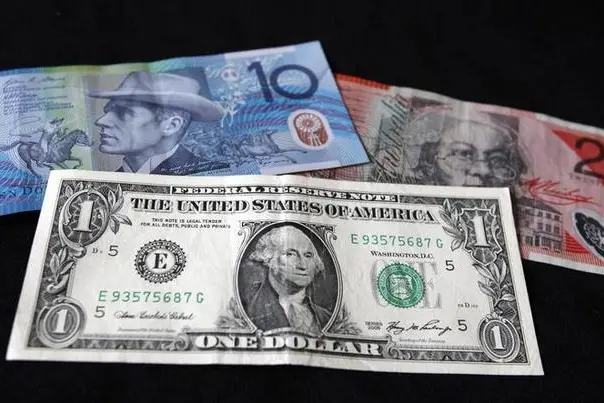PHOTO
The Australian and New Zealand dollars rose on Thursday, helped by the decline in the yen ahead of U.S. inflation data that could give guidance on whether the U.S. Federal Reserve will cut interest rates as early as March.
The Aussie rose 0.3% to $0.6723, having eked out a 0.2% gain overnight as the Japanese yen weakened. Against the yen, the Aussie dollar hit a fresh one-month top of 97.8 yen , after jumping 1% overnight. Chart support versus the U.S. dollar is around $0.6641.
The kiwi dollar also edged 0.3% higher to $0.6250, after slipping 0.2% overnight. It looked buoyant against the Japanese yen as well, hitting a new one-month high at 90.88 yen , building on a 0.7% gain overnight.
The yen has taken a tumble after data showed real wages in Japan fell faster in November, suggesting there will be no rush for the Bank of Japan to tighten policy any time soon.
Apart from the broad weakness in the yen, Asian equity markets were upbeat on Thursday, supporting the risk-sensitive antipodeans. Data that showed Australia's trade surplus surged to an eight-month high in November likely provided additional support to the Aussie as well.
Markets are still seeing 140 basis points (bps) of easing from the Federal Reserve this year and a two-thirds chance that rate cuts begin as soon as March - a view that could be challenged if U.S. inflation surprises on the high side later in the day.
Alan Ruskin, chief international strategist at Deutsche Bank, said a 0.3% core CPI number, as forecast in a Reuters poll, would suggest downwards improvements for inflation were stalling out, given that it would be the fourth 0.3% monthly change in the past five months.
"This pattern would also have been regarded as poor inflation data in the pre-COVID period, and with growth data still showing signs that it can keep to near 2%, there is no urgency for the Fed to ease early," Ruskin said.
The local bond market was on guard on Thursday, with three-year Australian government bond yields edging up 2 basis points to 3.765%. Ten-year yields were up by a similar amount to 4.139%.
(Reporting by Stella Qiu; Editing by Tom Hogue)





















